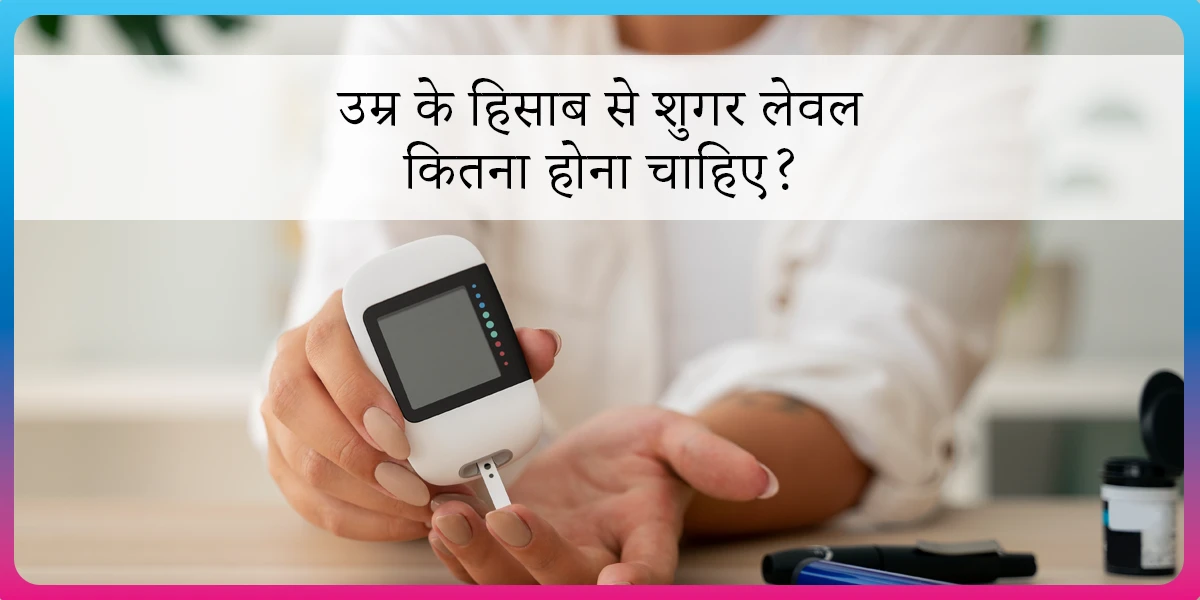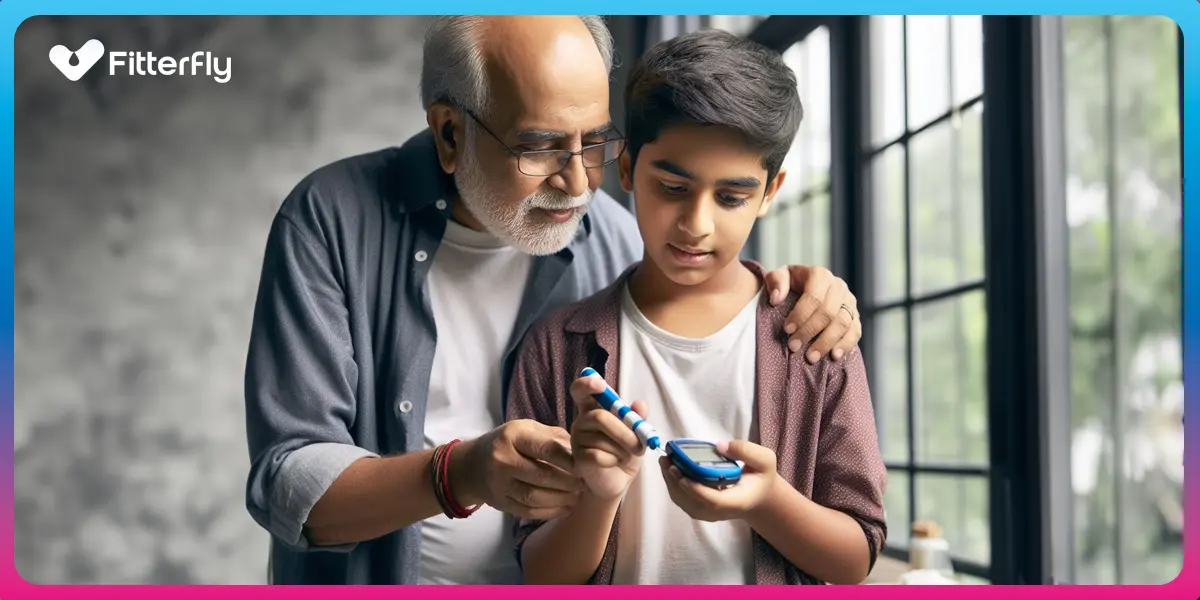16 Diabetes Signs and Symptoms You Should Never Ignore

Our bodies have a way of signalling when something isn’t right, and diabetes is no exception. Subtle changes, like constant thirst or slow-healing cuts, may not seem serious at first. But these could be warning signs that blood sugar levels are out of balance. There are different types of diabetes, each with unique causes:
- Type 1 diabetes happens when the body destroys insulin-producing cells, leading to little or no insulin. It develops quickly, usually in kids or teens.
- Type 2 diabetes is the most common. The body resists insulin or doesn’t make enough. It’s often linked to obesity, inactivity, and genetics. Symptoms appear slowly and may go unnoticed for years.
- Gestational diabetes occurs during pregnancy due to hormonal changes and usually goes away after childbirth but increases the risk of type 2 diabetes later.
There are also other less common types of diabetes with different causes.
Recognising these early symptoms can help in managing diabetes before complications arise. In this blog, we’ll talk about 16 key symptoms that shouldn’t be ignored.
To know your chances of Diabetes reversal, take the Diabetes Reversal TestDiabetes Reversal
Calculator
Understanding Prediabetes: The Stage Before Diabetes
Before discussing symptoms, let’s first understand prediabetes – a condition where blood sugar is higher than normal but not yet high enough for a type 2 diabetes diagnosis.
Most people with prediabetes don’t notice symptoms, so it often goes undiagnosed. Without healthy lifestyle changes like better eating and regular exercise, it can turn into type 2 diabetes.
8 Common Symptoms of Diabetes
- Increased thirst (Polydipsia) – You feel dehydrated and constantly thirsty.
- Frequent urination (Polyuria) – You pee more often than usual.
- Extreme hunger (Polyphagia) – You feel hungry all the time, even after eating.
- Frequent infections – Your body struggles to fight infections, leading to repeated skin, urinary, or yeast infections.
- Blurry vision – Your eyesight becomes blurry due to fluid imbalances in the eye.
- Slow-healing wounds – Cuts and wounds take longer to heal.
- Skin issues – You may notice dark patches or dry, itchy skin.
- Unexplained weight loss – Your body breaks down muscle and fat for energy, leading to sudden weight loss.
8 Symptoms of Diabetes Complications
If diabetes is not well managed, it can lead to serious health complications:
- Tingling or Numbness – High blood sugar can damage nerves, causing numbness, tingling, or a burning sensation, especially in the hands and feet.
- Heart Disease and Stroke – Damage to blood vessels increases the risk of heart attacks and strokes.
- Nerve Damage (Neuropathy) – Diabetes-related nerve damage may cause pain, tingling, or loss of sensation, particularly in the feet and hands.
- Kidney Damage (Nephropathy) – High blood sugar can harm the kidneys, making it harder for them to filter waste, potentially leading to kidney failure.
- Eye Damage (Retinopathy) – Damage to small blood vessels in the eyes can cause blurry vision and, if left untreated, may lead to blindness.
- Diabetic Ketoacidosis (DKA) – When the body lacks insulin, it starts breaking down fat too quickly, leading to a dangerous buildup of ketones in the blood. Symptoms include nausea, vomiting, stomach pain, confusion, and fruity-smelling breath. DKA is a medical emergency requiring immediate treatment.
- Hypoglycemia (Low Blood Sugar) – A sudden drop in blood sugar levels in people who are taking treatment for diabetes.
- Diabetes Symptoms in Men and Women – Men may experience erectile dysfunction or a reduced sex drive due to nerve and blood vessel damage. Women may face hormonal imbalances affecting their menstrual cycles, leading to irregular or heavier periods.
Signs and Symptoms in Adults and Children
Diabetes shows up differently depending on age. In adults, type 2 diabetes often develops slowly, with symptoms like thirst, fatigue, or slow-healing wounds going unnoticed. Some may also have pancreatic diabetes, which affects digestion, causing stomach pain, loose stools, and weight loss.
In children, type 1 diabetes appears suddenly. A once-active child may start drinking more water, using the bathroom frequently, losing weight, and feeling constantly tired.
If untreated, it can lead to diabetic ketoacidosis (DKA), a serious condition causing nausea, vomiting, and fruity-smelling breath. Type 2 diabetes is less common in children but is increasing due to lifestyle changes.
That’s why recognizing these signs early can help prevent complications and ensure timely care.
Importance of Testing
Because diabetes can initially have few or no noticeable symptoms, routine check-ups are crucial. Simple tests like a fasting blood sugar test or HbA1c test can detect problems early. If you have any risk factors (like a family history of diabetes) or spot potential symptoms, it’s a good idea to get tested.
Why Early Detection Matters?
Catching high blood sugar levels in the pre-diabetic stage or early in type 2 diabetes greatly reduces the risk of complications. With the right blend of healthy eating, regular exercise, weight management, and possibly medication or insulin therapy, you can keep blood sugar levels in a safer range and protect yourself from serious health issues down the line.
REVERSED Diabetes in 3 months


5.7%
Happy members
EMI
Guarantee
4.8/5
Diabetes Prime Program
What to Do to Prevent Diabetes and High Blood Sugar Levels?
Preventing diabetes or managing high blood sugar is all about building healthy habits. By focusing on four key areas – nutrition, exercise, stress, and sleep, you can maintain stable blood sugar levels and lower your risk of diabetes.
1. Eat Healthy Foods
What you eat has a big impact on your blood sugar. Stick to simple, home-cooked meals using ingredients you already have in your kitchen.
- Choose Whole Grains: Replace white rice or bread with brown rice, whole wheat chapati, or millets like jowar and bajra.
- Add More Fiber: Include lentils (dal), legumes (like rajma or chana), vegetables (like spinach, pumpkin, or okra), and seasonal fruits (like guavas, apples, or papayas).
- Reduce Sugar Intake: Avoid sugary snacks like mithai, ladoos, or gulab jamun. Use jaggery or honey in small amounts if needed.
- Control Portions: Don’t overload your plate with rice or rotis. Instead, balance meals with vegetables, dal, and curd.
- Eat Balanced Meals: Add protein (like paneer, eggs, or fish), healthy fats (like coconut, mustard oil, or ghee in moderation), and carbs to keep your sugar steady.
2. Stay Active
Physical activity helps your body use sugar effectively. You don’t need to join a gym – everyday activities are just as effective.
- Go for Morning or Evening Walks: Walking around your neighborhood or local park for 30 minutes is simple and effective.
- Household Chores: Activities like sweeping, mopping, or washing clothes keep you moving while getting work done.
- Yoga: Practice simple poses like Surya Namaskar or pranayama to improve flexibility and balance.
Climb Stairs: Avoid elevators whenever possible; climbing stairs is great exercise. - Be Consistent: Do what you enjoy dancing, gardening, or even playing with kids – just stay active every day.
3. Manage Stress
Stress can raise your blood sugar levels, so it’s important to keep it under control.
- Practice Deep Breathing: Spend 5–10 minutes daily on pranayama or simple breathing exercises.
- Relaxing Activities: Spend time gardening, cooking, or listening to your favourite music to relax, or do whatever you love to do that makes you feel good and happy.
- Talk to Someone: Share your feelings with family or close friends to lighten your mental load.
- Avoid Overworking: Take regular breaks throughout the day to avoid burnout.
4. Get Enough Sleep
Good sleep is essential for controlling blood sugar and overall health.
- Set a Routine: Go to bed and wake up at the same time daily, even on weekends.
- Create a Comfortable Environment: Keep your room cool, quiet, and dark for better sleep.
- Avoid Heavy Dinners: Finish eating 2–3 hours before bedtime. A light dinner of khichdi or soup can help.
- Unwind Before Sleep: Practice calming activities like listening to bhajans, reading, or meditation before bed.
4 Simple Everyday Tips
- Drink Water Regularly: Sip on plain water or nimbu pani (without sugar) throughout the day.
- Get Regular Health Check-Ups: Visit your doctor for blood sugar tests, especially if diabetes runs in your family.
- Watch Your Weight: Losing even 5–7% of your body weight can significantly reduce your risk.
- Avoid Smoking and Limit Alcohol: These habits can worsen blood sugar control and increase complications.
How We At Fitterfly Can Help You?
Recognizing the early signs of diabetes is the first step, but managing it effectively requires the right guidance and support. At Fitterfly, we help you take control of your health by providing a personalized, science-backed approach to diabetes care.
Our Fitterfly Diabetes Prime Program is designed to support you in every aspect of managing diabetes – from understanding symptoms to controlling blood sugar levels through nutrition, exercise, and lifestyle changes. With the help of your Nutrition Coach, Fitness Coach, and Success Coach, we create a plan that fits seamlessly into your daily routine.
Our experts guide you on:
✅ Eating Right – Personalized meal plans with diabetes-friendly foods to keep your sugar levels stable.
✅ Staying Active – Simple, effective exercises that improve insulin sensitivity and overall health.
✅ Managing Stress & Sleep – Practical tips to reduce stress and improve sleep, both crucial for blood sugar control.
✅ Tracking Your Progress – The Fitterfly app helps you monitor your blood sugar, diet, and activity, making diabetes management easier.
Diabetes is manageable when you have the right support. If you want expert guidance to prevent, control, or even reverse diabetes, we’re here to help.
Give us a missed call at 08068507599 and take the first step towards a healthier, happier life today!
This blog provides general information for educational and informational purposes only and shouldn't be seen as professional advice.
Frequently Asked Questions
What are the 5 major signs and symptoms of diabetes?
The key symptoms include increased thirst, frequent urination, extreme hunger, unexplained weight loss, and fatigue.
What are the 7 common symptoms of diabetes?
Common symptoms are excessive thirst, frequent urination, fatigue, blurred vision, slow-healing sores, frequent infections, and unexplained weight loss.
What are the big 3 signs of diabetes?
The "big three" are increased thirst (polydipsia), frequent urination (polyuria), and increased hunger (polyphagia).
What are 5 signs of a diabetic emergency?
Watch for confusion or dizziness, rapid heart rate, sweating, difficulty breathing, and loss of consciousness. Seek immediate medical help if these occur.
What is the main cause of diabetes mellitus?
Diabetes mellitus is primarily caused by the body's inability to produce or effectively use insulin, often due to genetic factors, lifestyle choices, or autoimmune responses.
What are 10 warning signs of diabetes?
The 10 warning signs of diabetes include increased thirst, frequent urination, extreme hunger, blurred vision, fatigue, slow-healing wounds, tingling or numbness in the hands and feet, dry skin, unexplained weight loss, and frequent infections.
What is the best treatment for diabetes?
Effective management includes a balanced diet, regular exercise, monitoring blood sugar levels, and medications such as insulin or oral hypoglycemics. A personalized approach with the help of healthcare professionals ensures optimal care.





















